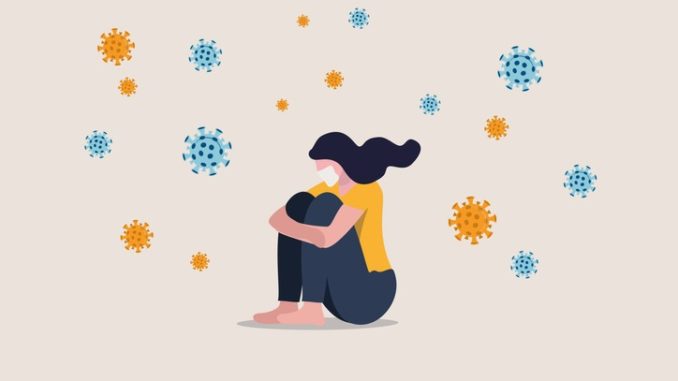
The Royal College of General Practitioners in NI (RCGPNI) is concerned that issues such as redundancies, alcohol abuse, domestic violence and disrupted grief processes are creating an increased surge of mental health problems that will affect patients in the weeks, months and years to come
This week is Mental Health Week in Northern Ireland (18-24 May 2020) and family doctors are becoming increasingly worried about the long-term impacts of coronavirus as patients begin returning to their local GP surgery with new or exacerbated mental health problems including anxiety and depression. Being isolated from loved ones has helped the nation battle the virus said Dr Laurence Dorman Chair of RCGPNI but it comes at a cost.
“It has now been more than nine weeks since we began the lockdown phase to contain the spread of COVID-19,” Dr Dorman said.
“Overnight society had to adapt quickly to new ways of accessing healthcare, working from home, shopping for basic food items, constantly living within a confined space and being exposed to the non-stop presence of family members or co-inhabitants. For many people the lock down meant losing their job.
“This unprecedented shift in living circumstances is undoubtedly taking its toll on people’s mental health and is causing significant amounts of stress for our patients, many of whom we have known for years.”
Another major factor is the that people haven’t been able to grieve properly.
“For many bereaved people, funerals and burials are postponed or held remotely, often without presence of family or the possibility of receiving a comforting hug from a friend,” Dr Dorman added.
“We know if families are denied opportunities to say goodbye before a death or have cultural rituals such as funerals interrupted, the grieving process becomes disjointed, meaning people are prevented from going through normal processes and risk not achieving closure.”
GPs are trained to spot the signs and symptoms of depression and low mood when patients contact us with other complaints. Dr Dorman added.
“For those patients who we have concerns about their mental health, we will explore their concerns further and tailor the treatment to what is most appropriate for them.
“Primary care is again shouldering a significant amount of work within our NI healthcare system and it is paramount that we do not ignore the psychological impact that the pandemic has on individuals and society. The psychological ramifications will be long-lasting even after the lockdown has ended, and during mental health week we want to reassure our patients that if they are suffering from mental effects of the pandemic to get in touch with their GP.”
Don’t forget to follow us on Twitter, or connect with us on LinkedIn!

Be the first to comment